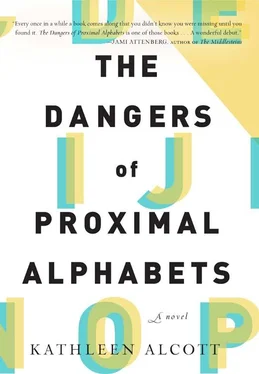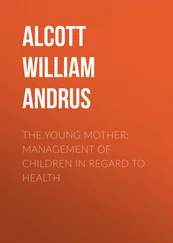He faltered and I smiled.
“Paul?” I asked. “Just look at them.”
“All right, all right. But I promise nothing.”
I brought the box to the table and placed it in front of him where he was propped up on his elbows, smiling wryly. I brought our dishes to the kitchen and washed them carefully, letting the water run longer than necessary, feeling calmer than I had in a long time.
He was enraptured and didn’t notice me come in. I placed a hand lightly on his shoulder and he jumped. I sat in the chair next to him and watched his face, which was glued to the pieces with consternation.
“Ida. Ida, I am so, so sorry. They’re … they’re nothing like what I expected. I don’t know … I don’t know what I expected, but not this. Not. This,” and he waved his hand over the same piece Nathan had become stuck on.
“ ‘ I asked you nicely the first time’ ?! My God. So terrifying. And his face !” He stood and started moving.
“I’ll show them. In a heartbeat. We’ve got to. The only thing is … him, right? He doesn’t like them, is that right? Over the phone you said—”
“It’s not quite that he doesn’t like them. He just feels, I guess, that they don’t belong to him, that he doesn’t have any right to be congratulated for them. He can’t, you know, do anything like them while he’s awake.” My throat caught, but he didn’t notice.
“It’s perfect,” Paul exalted. “The best example of art that must … that there’s just no choice about.”
He was ecstatic and insisted I stay longer, refilling my glass of beer without asking and not noticing that my spirits did not lift with the warm carbonation. And why didn’t they? I couldn’t figure it out, quite. Wasn’t this what I wanted, for an authority on the subject to be as moved as I was? The omission rang out: in Paul’s praises of the pieces there was none of the struggle on my Jackson’s face in the morning as he wondered at a secret part of him so gruesome. None of the pain of opening your eyes in a different place than you’d closed them, of feeling unsure of where you’d been and knowing you had changed the world in small ways. I left Paul’s with the promise I would convince Jackson. I felt heavy with guilt and a familiar, obscure failure, like I had many years before when I’d tried to bring back what had been stolen and had instead unleashed forty-odd diseased, starving cats, clawing their way out of confinement, releasing a stench that drowned all else.

Paul’s gallery space was small, with well-worn hardwood floors and no windows. Still, it had gained respect in the concentric art world of our city, just as he had with his brand of quiet, earnest charm. He was a trust fund baby who lived modestly and took pleasure in funding projects and artists he felt to be noble. More often than not, there was some kid from East Lansing, Michigan, or Bentonville, Arkansas, or some other town you’d never heard of, a talent Paul had somehow “discovered,” staying on his couch until he found his feet in the city. In being so constantly generous, as well as having really quite the eye for art others were likely to overlook, he had built a following of people absolutely enamored with him and his pursuits, no matter how ridiculous. Every opening he held was full and buzzing with happy people, overflowing out the door and onto the street, talking passionately about the pieces inside, embracing individuals they’d just met. Jackson’s, unfortunately, was no different.
He had grudgingly agreed to a show, though not without a great deal of resentment, and mostly to appease Paul, whose interest was endearing and had only grown with Jackson’s aversion. After weeks of negotiation, Jackson had agreed to let his sleep’s works be shown in the gallery but had no interest in an opening. Paul, determined, had pushed for a “quiet unveiling” late at night in loyalty to the art’s conception; he promised there would be very little publicity and only modest curating that respected the artist’s queasiness.
These promises, of course, did not hold up. For all Paul’s munificence, he was still someone who generally got what he wanted from the world, and he had a hard time truncating his vision of desire. He made no posters or press releases, but his tongue was, as ever, free: word spread in the weeks preceding, and a substantial buzz began to sound.
Paul prepared furiously. He papered the ceiling of the space with pages of nineteenth-century French and German texts on sleepwalking and decided to name the exhibition after one of the titles, Somnambulism and Cramp , written by a man named Reichenbach who credited reports that sleepwalking was affected by the moon, and that sufferers were generally individuals with exaggerated sensory abilities; he called them “sensitives.”
In the shortening days leading up to it, Jackson maintained he would not be present for the unveiling, which was to take place at three a.m. He grumbled around the apartment and took on the reorganization of our closets, the waxing of our floors, the oiling of our creaky dead bolt. I caught him at the kitchen sink, sponge in hand and warm water running over his fingers into the empty sink, immobile and slightly smiling.
The morning of the event came, and we woke pleasantly. There had been no incidents the night before, save that Jackson had hopped into the shower asleep and gained consciousness with shaving cream covering his face and then decided it was time for a shave anyhow. The sun was shining, though the weather had predicted fog, and the birds outside did not sound like the kind that live in cities. He whispered me awake, tracing intricate patterns on the backs of my knees. He nibbled on my breasts as if he hadn’t a thousand times before, he kissed me like he might discover something by doing so, he didn’t let a strand of hair obscure my face, we fucked for almost an hour with our eyes open the whole time. And in the nature of lovers, we pretended, afterward, that it had been perfectly natural, congratulated each other on stamina and technique, did not mention that the last time our bodies had interacted in this way, the month was classified under a different season.
I scrambled eggs with fresh produce from the Mexican market, made too-strong coffee, and brought it back to him in bed. He had moved to lean against the headboard but his limbs remained loose in satisfied exhaustion.
He smiled dreamily at the bright primary colors of the food on the plate, then shifted his lightness toward me, and said, with wonder, “I think … I think I’d like to go!”

Paul’s gallery was eight blocks from our place. The night was extremely warm, which happens in our city with no pattern, and at the most seven times a year. Jackson’s mood was hard to navigate in that it was, just simply: pleasant. He smiled broadly at a weaving drunk making his way home from God knows where; he gave money to the one bum still out begging; he insisted on holding my hand; he had brought along a six-pack of a beer he used to love but that I hadn’t seen him drink in at least two years. All of which made me nervous. Probably I had some idea of the evening’s turnout, but only in the way that stiff joints often indicate bad weather though they can’t accurately predict the how and when of the downpour.
I could hear it from a block away; it’s funny how the amalgam of many quiet conversations actually feels louder (or rather, more emphatic) than human noise that is booming and frenzied. Of course, it was amplified by the juxtaposition of the hour: the bars had closed an hour before and the homeless people had put down their crime pulp paperbacks and flashlights and settled into their nests of scratchy blankets and cardboard. When we got closer, saw the cluster of people, Jackson stiffened with regret; his eyes began to take a terrible vacation. I knew, then, his coming had been a mistake.
Читать дальше













